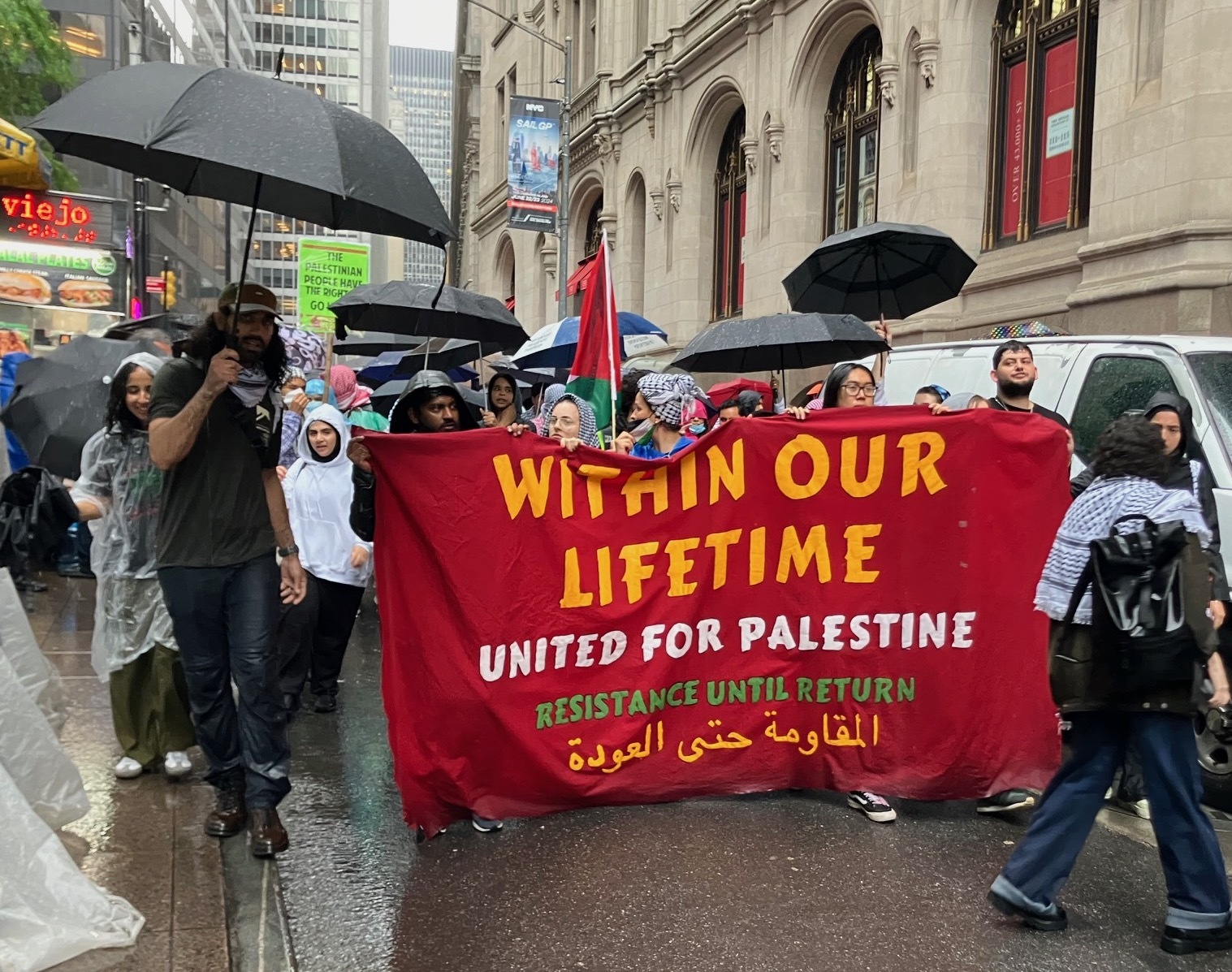The […] pariah state has chosen to again display its arrogance and contempt for international institutions. What is new since last October, however, is that these United Nations institutions have finally charged [neocolonial] officials and the [neocolony] itself with serious war crimes.
Have no illusions regarding these courts. Neither the ICJ nor the ICC on their own can stop the genocide or arrest [neocolonial] leaders. They have no apparatus to enforce their decisions. That the courts declared these rulings, however, indicates a change in the world’s attitude toward [the neocolony].
The ICJ, also called the World Court, was established in 1945 as the U.N. was being set up and the U.S. was dominant worldwide economically and militarily; the ICJ adjudicates general disputes between nations, which all U.N. members recognize.
In 2001 the Rome Statute, which has been ratified by 124 nations, but not by the U.S., [its neocolony], India, China or Russia, established the ICC. The ICC can investigate and charge individuals with crimes like genocide, crimes against humanity, war crimes and aggression, like the charges brought against Netanyahu and Galant. To date nearly all such cases have been brought against political leaders in Africa or of other less powerful or rich states.
The ICC also charged three leaders of Hamas with war crimes regarding the events of October 7. This charge has no basis, as the October 7 uprising was the legitimate response of a colonial population to 76 years of oppression, which is a right under the U.N. Charter. The charges are thus a travesty, as Hamas, along with other resistance forces, had a right to take up arms against the occupation.
Despite these spurious charges against Hamas leaders, that [neocolonial] government officials might face arrest in world capitals is an unexpected defeat, not only for [neocolonialism], but also for U.S. [neo]imperialist interests.
That these cases were decided in the two international courts is important not because they resolve [neocolonial] aggression — nor do they punish U.S. [neo]imperialism for backing and arming this aggression — but as a symptom that mass worldwide anger against the […] régime has reached new levels. The popular anger against [the neocolony] is so strong and widespread that it has pushed governments to react.
(Emphasis original.)


